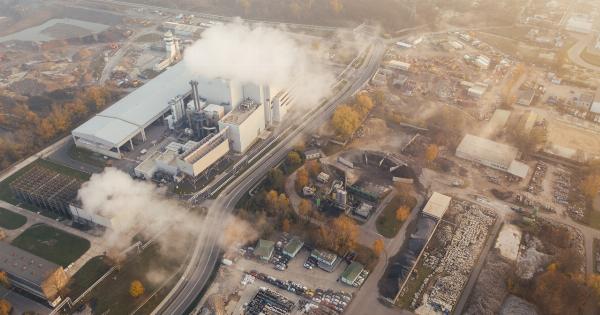Serious Disease Allowance (SDA) is a government program designed to provide financial assistance to individuals suffering from serious illnesses.
The aim is to help these individuals cover their medical expenses and ensure they have access to the necessary treatment and care. While SDA offers crucial support, it is important to understand its limitations in order to make informed decisions and plan accordingly. This article aims to shed light on the key limitations of Serious Disease Allowance.
Limitation 1: Eligibility Criteria
One of the primary limitations of SDA is its strict eligibility criteria. Not all individuals suffering from serious diseases can qualify for this allowance. The government has set specific guidelines regarding the types of illnesses that qualify for SDA.
These guidelines are often subject to change and can be quite restrictive, leaving some individuals without the financial assistance they desperately need.
Limitation 2: Limited Financial Coverage
While SDA provides financial assistance, the amount is limited. The government determines the maximum amount individuals can receive under this allowance, which may not be sufficient to cover all the medical expenses related to a serious disease.
This limitation can put a significant financial burden on patients and their families, especially in cases where the treatment costs are high or ongoing.
Limitation 3: Time Restrictions
SDA may also have time restrictions associated with it. The government may define a specific period during which individuals can receive SDA, which is based on factors such as the duration of the illness or the stage of treatment.
After this period ends, individuals may no longer be eligible to receive the allowance, even if they continue to require ongoing treatment or care. This limitation can create uncertainty for individuals relying on SDA for their medical expenses.
Limitation 4: Non-covered Expenses
Another important limitation of SDA is that it may not cover all medical expenses associated with a serious disease.
While the allowance may provide support for certain types of treatments and medications, there may be other necessary expenses that are not included. This can include non-traditional or experimental treatments, alternative therapies, or specific medical devices required by the individual.
It is essential for individuals to be aware of these limitations and plan accordingly to avoid unforeseen financial burdens.
Limitation 5: Means Testing
Means testing is another significant limitation of SDA. The government often assesses an individual’s financial situation when determining eligibility for the allowance.
This means that individuals with higher incomes or financial resources may be excluded from SDA, even if they are suffering from a serious disease. While means testing aims to ensure that the resources are allocated to those who need it the most, it can be frustrating for individuals who do not meet the criteria due to their financial situation.
Limitation 6: Lack of Flexibility
SDA programs often lack flexibility when it comes to addressing individual needs and circumstances. The government sets general rules and criteria, which may not account for unique situations or variations in medical conditions.
This lack of flexibility can lead to individuals falling through the cracks and not receiving the support they truly require. It is important for policymakers to consider refining the program to make it more adaptable to various medical scenarios.
Limitation 7: Limited Scope of Coverage
SDA programs typically have a limited scope of coverage. They may focus on specific illnesses or medical conditions, leaving individuals with other serious diseases ineligible for the allowance.
This limitation can be particularly challenging for individuals suffering from rare or less recognized diseases, as they may not receive the financial assistance they need. The government should continuously review and update the scope of coverage to reflect the evolving medical landscape and ensure equitable access to support.
Limitation 8: Administrative Delays
Delays in the processing of SDA applications can be a frustrating limitation for individuals in need of immediate financial assistance.
The administrative procedures and verification processes involved in determining eligibility and disbursing funds can be time-consuming. This can lead to delays in accessing the funds, which can result in individuals having to bear the burden of medical expenses temporarily. Streamlining the administrative processes should be a priority to address this limitation.
Limitation 9: Lack of Public Awareness
Many individuals who could potentially benefit from SDA may not be aware of its existence or the eligibility criteria.
The lack of public awareness is a significant limitation as it prevents individuals from accessing the support they might be entitled to. It is crucial for the government to invest in public education and awareness campaigns to ensure that individuals are informed about the availability and requirements of SDA.
Limitation 10: Dependence on Government Funding
SDA programs are dependent on government funding, which can be subject to economic fluctuations and budgetary constraints. This dependence can lead to uncertainties in the continuity and availability of the allowance.
There may be instances where the government is unable to allocate sufficient funds to meet the demand or maintain the program at a desired level. This limitation highlights the need for sustainable and reliable funding sources to ensure the long-term viability of the SDA program.






























